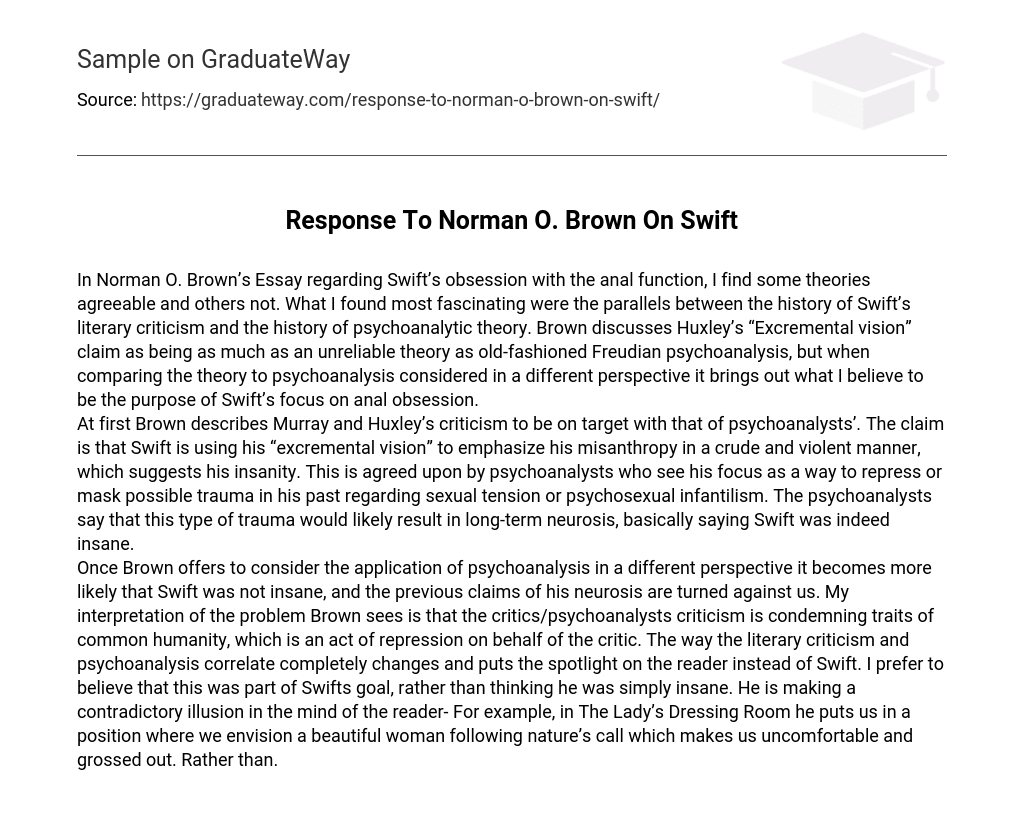In his essay, Norman O. Brown discusses Swift’s fixation on the anal function and presents several theories that I both agree and disagree with. What I find particularly interesting are the connections drawn between the development of Swift’s literary criticism and the evolution of psychoanalytic theory.
Brown argues that Huxley’s “Excremental vision” claim is just as unreliable as old-fashioned Freudian psychoanalysis. However, when comparing the two theories from a different perspective, it reveals the purpose of Swift’s emphasis on anal obsession.
Initially, Brown agrees with Murray and Huxley’s criticism that Swift’s use of an “excremental vision” highlights his crude and violent misanthropy, suggesting insanity. Psychoanalysts also support this view, seeing Swift’s focus as a way of repressing or masking potential trauma related to sexual tension or psychological infantilism. They argue that such trauma would likely result in long-term neurosis, thus confirming Swift’s insanity.
However, when Brown suggests examining psychoanalysis differently, it suggests that Swift may not have been insane, undermining the previous claims of his neurosis.
Brown’s understanding of the issue is that the critics’ and psychoanalysts’ critique condemns universal human qualities, repressing the critic themselves. The connection between literary criticism and psychoanalysis shifts the focus onto the reader rather than Swift. I would rather believe that this was Swift’s intention rather than dismissing him as merely insane. He creates a contradictory illusion in the reader’s mind – as seen in The Lady’s Dressing Room – where we are made to envision a beautiful woman engaging in natural bodily functions, causing us discomfort and repulsion.
Instead of.





